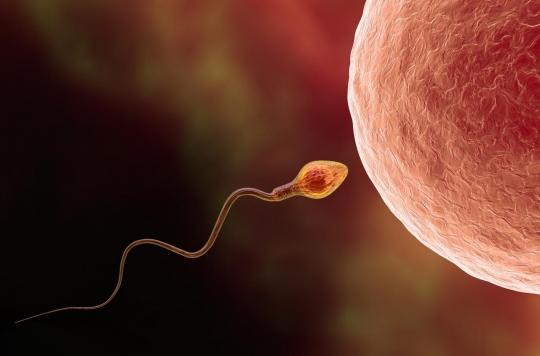Despite opposition from the right, the National Assembly voted again to open up medically assisted procreation (PMA) to all women, a flagship measure of the bioethics bill examined in a new reading on Tuesday June 8, before its adoption final on June 29.

- While nearly 80% of French people of age to donate gametes say they are ready to take action, only 0.007% take the plunge today.
The vast majority of French people would refuse to donate gametes if their identity were revealed to the 18-year-old of the child conceived thanks to their genetics, according to a new IFOP survey. “The lifting of the anonymity of gamete donors risks heavily affecting access to PMA for all!”, therefore estimates the association Les Matrikas in a press release.
“Risks of shortage of gamete donations”
The Bioethics bill will allow future children born thanks to a donation of gametes (oocytes or spermatozoa) to access the identity of their parent or parent when they come of age. “This major advance for the rights of the child nevertheless weighs very heavily on the risks of a shortage of gamete donations in France if it comes into force too abruptly”, believes the association.
It is in this context that the organization Les Matrikas – which campaigns for equal access to reproductive health and non-discrimination in parental rights – conducted a study, in partnership with the IFOP , to survey the French on their predisposition to gamete donation. Conclusion: 70% of people questioned would refuse to make a donation if their anonymity was not guaranteed.
“A figure to be considered with all the more attention as the stocks of donated gametes in the Cecos (Centres for the study and conservation of human eggs and sperm) are already insufficient to meet current demands, and that the openness to PMA for all will de facto increase the number of applicants (by 50% on average)”assesses The Matrikas.
The entry into force of the lifting of anonymity will also lead to the destruction of the gametes of people who have already given but refuse the lifting of their anonymity. “Thus, when the Bioethics law is passed, the reserves of gametes in Cecos will be reduced almost… to zero”, laments the association. “Thousands of heterosexual, lesbian and single couples could wait years to be granted a donation, or will go abroad because they cannot carry out their life project in France”, add the activists.
“We must consider a transitional period”
“Parliamentarians and the government know this, and that is also why they are asking for an evaluation report after the passage of the law: in all the countries which have put an end to anonymity, a significant drop the number of donations followed”, they continue.
“In France, this measure will come into effect concomitantly with the Bioethics law. If we do not want the opening of PMA to all women to remain a wishful thinking, we must consider a transitional period, in which the Cecos leave the possibility for male and female donors to preserve their anonymity if they so wish, for at least one year, with the assurance of mixed donations and the guarantee that anonymous gametes will not be destroyed at the time of application of this measure, women waiting for an oocyte or sperm donation could still have access to it in France when the law is passed”, conclude Clémence Artur and Sandrine Trichard, co-presidents of the Les Matrikas association.
.















